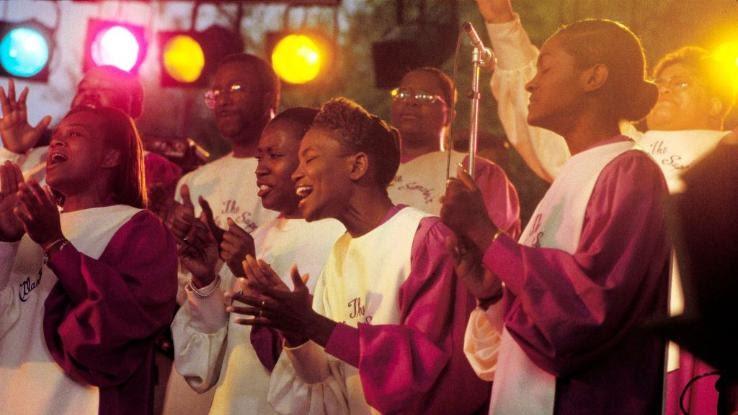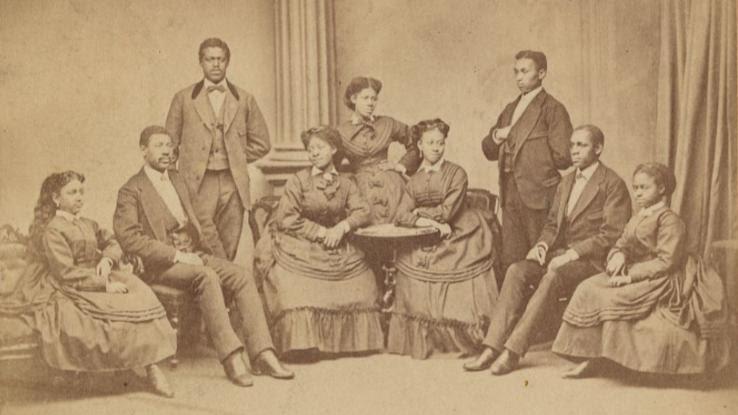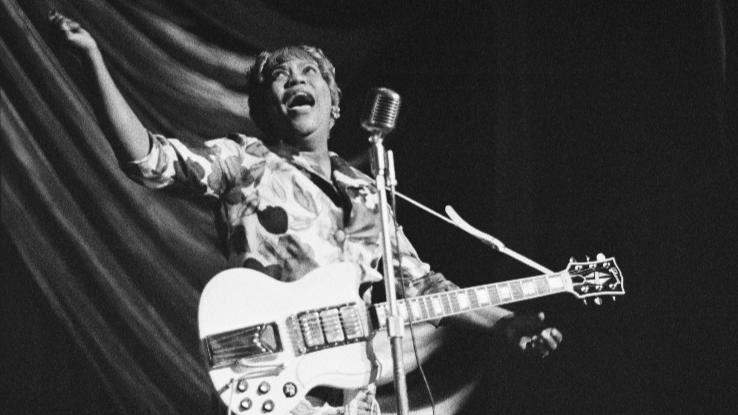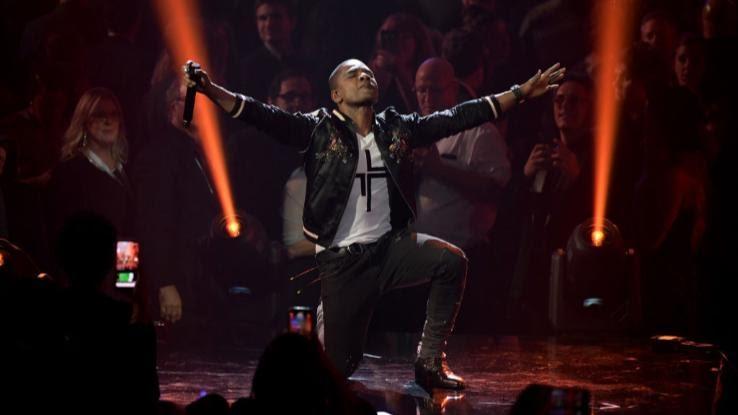Iutube : I Will Never Be the Same Again Gospel Song

Melodic, soulful and stirring, gospel music is unique in its power to move people — emotionally and spiritually. And from the rich harmonies and upbeat tempos to the meaningful lyrics and brilliant energy, there's a lot to beloved near this historied genre of music that first started developing in the late 1600s. The story of gospel music is a fascinating one that the University of Southern California describes as "a product of the religion, culture and history that establish the African-American experience," highlighting the genre'south importance in Black fine art but also in Black culture.
From the traditional songs of enslaved people to early on hymns, the way is a musical melange that continues to evolve. Whether you're a fan of the latest gospel music or can't get enough of traditional gospel songs, it's important to learn about the e'er-evolving history of the genre. Here we'll explore not only how gospel music became a historic genre in its ain right but also how it continues to bear upon today'south songs.
Gospel's Origins Take Roots in the American South
Like many creative movements, the origins of gospel music can't necessarily be traced back to a single source in history, just they can exist traced back to a time period. Some scholars credit British minister Isaac Watts, the "godfather of the English hymnody," for laying downwardly the foundations for the lyrical content of afterwards gospel hymns. Watts was credited with writing somewhere between 600 and 750 hymns throughout his life, including the lyrics to the Christmas classic "Joy to the World."

Enslaved African people who were brought to the American South, nevertheless, are responsible for the development of the musical elements that began shaping gospel music. African music introduced many elements that would after feature heavily in gospel, including phone call and response, polyrhythms and improvisation. While enslaved people were gathered in fields laboring or socializing, they also "improvised folk songs," according to Cincinnati Playhouse in the Park.
During the "great enkindling" of the 1730s, white landowners and other British colonists were suddenly convinced of the need to forcibly catechumen enslaved people to Christianity. Over fourth dimension, this resulted in the formation of a number of Black churches throughout the American South, and recently converted Black Christians were exposed to a variety of Watts' hymns and other religious music while attention services. By the 1800s, the African-American community had launched a new musical awakening as people began to alloy spirituals and hymns with elements of traditional African folk music, such equally shouts and chanting of lined hymns. These songs gradually spread throughout worship services at Blackness churches and formed the courage of what would become gospel music.
In 1871, a group of Black artists called the Fisk Jubilee Singers, all but two of whom were formerly enslaved, fix out on a musical fundraising tour in an effort to prevent the closing of Fisk Academy, a historically Black college in Nashville, Tennessee. The song artists performed "slave songs" chosen spirituals, which described the hardships of slavery against a backdrop of Christian values. The group's performances would go on to launch an international tour that was largely credited for introducing slave spirituals to the world.
The meteoric rise in use of the radio in the 1920s gave what would somewhen become known as gospel music an even greater platform as its popularity continued to spread. Throughout the 1930s and 1940s, gospel songs continued to flourish, and traditional spiritual elements were combined with other styles. I notable example comes from the Golden Gate Quartet — originally known every bit the Aureate Gate Jubilee Quartet — that formed in 1934. The group blended spiritual music with barbershop quartet songs and musical elements of jazz and blues. Although it's undergone a number of changes in lineups since its inception, the Golden Gate Quartet still performs today.

The aforementioned period saw the rise of Sis Rosetta Tharpe, a recording artist whose gospel recordings soared to popularity. Not only could Tharpe sing, just her skills on the guitar came to be regarded equally absolutely legendary. Her blend of gospel lyrics and rhythm would later earn her the nickname of "The Godmother of Stone 'due north Roll" and help pave the way for afterward secular gospel musicians such as Elvis Presley and Aretha Franklin.
Gospel would go on to influence a large number of other styles when artists similar Ray Charles blended it with R&B and Marvin Gaye effortlessly gave it a Motown-style makeover. Other singers, such every bit Lee Williams and Bill Gaither, accomplished widespread recognition amidst the gospel music community. Lee Williams and his group, the Spiritual QCs, began recording gospel songs and touring around 1970. The group went on to produce multiple Gospel Acme Ten Billboard hits and garner a nomination for the Best Gospel Album from the Soul Train Music Awards. The winner of 10 Stella Awards, Lee Williams remained active as a gospel singer until the 2010s when he began experiencing the effects of Alzheimer's.
Today's Gospel Music Blends Tradition With Mod Sensibilities
Despite having been woven into endless other musical styles throughout the years, gospel music is withal alive and well in its own right. To become a gustation of some of gospel music's most popular modern-day incarnations, cheque out online music sites such equally Black Gospel Radio, which plays free Blackness gospel music around the clock.

True to the traditions of the past, gospel music remains a fleck hard to pin downwards into a single category to this day. There's a wide multifariousness of popular artists who make gimmicky gospel music, and many of them alloy their own musical styles with traditional gospel-themed messages.
Singer Yolanda Adams utilizes everything from traditional elements such every bit a backup choir to modern, upbeat R&B rhythms and vocals. Darwin Hobbs has become known for his Luther Vandross-like soul elements, while Kirk Franklin is well known for combining gospel with hip-hop and rap. Even popular artists such as Kanye Due west take begun producing gospel records for today'south audiences. West's anthology Jesus Is King earned him iv 2020 Billboard Music Awards, including Top Gospel Artist, Top Gospel Album, Acme Christian Album and Top Gospel Vocal for "Follow God."
Perhaps more than chiefly, withal, gospel music still flourishes in the same places where it was first sung to life. Each week, gospel songs period from the pews of churches across the country, as believers gather to celebrate their faith. From its origins in hardship to its best-selling albums, gospel music continues to exist a source of strength, inspiration and joy to listeners and singers akin from all over the globe. Whether its themes are heard playing in a Peak-40 radio programme or sung by a local choir, gospel is very much alive, and it's vital to recognize its rich history and the meaning it carries for Black communities across the country.
Source: https://www.questionsanswered.net/lifestyle/gospel-music-origins?utm_content=params%3Ao%3D740012%26ad%3DdirN%26qo%3DserpIndex
Post a Comment for "Iutube : I Will Never Be the Same Again Gospel Song"